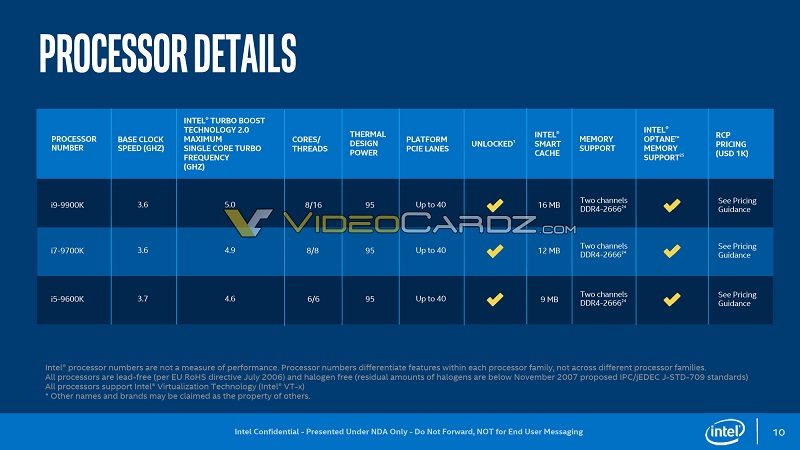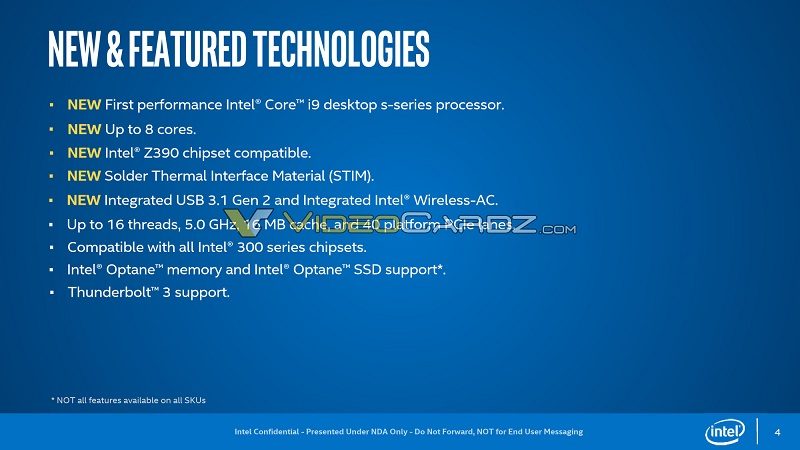Intel Returns to Soldered IHS for 9th Gen Core CPUs
Samuel Wan / 6 years ago
Intel May End 6 Year Hiatus From Solder
Overclocking has always been the go-to method to increase CPU performance. One of the biggest inhibitors of a high clock rate has always been temperature. Seeking the highest clocks, users have always loved soldered integrated heat spreaders. Short of an exposed die, they are the next best thing when it comes to cooling. For the upcoming 9th Gen mainstream CPUs, Intel may finally be bringing back soldered IHS.
Back in 2012, Intel made the controversial choice to ditch solder and go with thermal paste for Ivy Bridge. As expected, stock overclocking suffered as temperatures spiked. Those seeking the best temps and clocks resorted to warranty voiding delidding. At the time, Intel claimed that thermal paste was necessary due to the smaller dies. Some observers suggested that it was a penny-pinching way to save on solder. Due to a weaker AMD, there was little incentive for Intel to do better.

Will All 9th Gen CPUs Get Solder?
Now that there is a resurgent AMD with Ryzen, Intel is pulling out all the stops. Once again, the company is returning to the use of solder. This will hopefully boost both stock performance as temperatures remain lower and overclock speeds as well. Intel’s previous protestations aside, it doesn’t seem like there will be any downsides to solder. Even if delidding is near impossible again, it won’t really be needed anymore. The only question is how much of the lineup will get solder or only the top end 8 core chips.
On top of the solder, the leaked slides also detail some specifications. The Core i5 9600K will feature 6 cores at 3.7 GHz base and 4.6 GHz boost. The Core i7 9700K will have 8 cores clocked at 3.6 GHz stock and 4.9 GHz boost. Finally, the i9 9900K will have 8 cores, with the boost set at 5.0 GHz and the addition of Hyper-Threading. Finally, with AMD pushing the envelope, we are seeing Intel releasing more compelling and interesting chips.




















